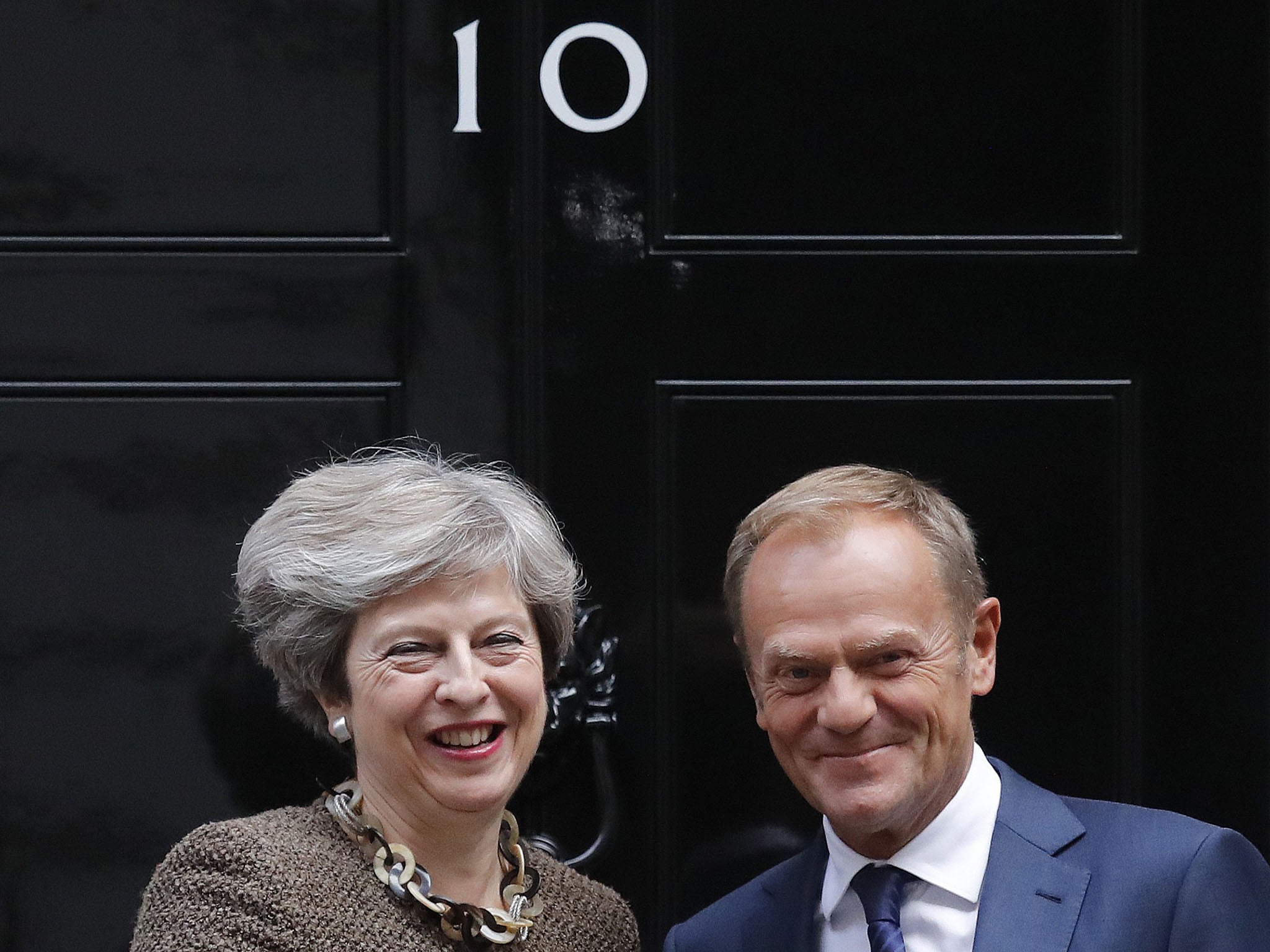Theresa May is calling the EU's bluff over a 'no deal' Brexit – but could we actually survive it?
When the Prime Minister talks about a ‘no deal’ scenario her absence of preparation for such a course of action renders her words meaningless


Your support helps us to tell the story
From reproductive rights to climate change to Big Tech, The Independent is on the ground when the story is developing. Whether it's investigating the financials of Elon Musk's pro-Trump PAC or producing our latest documentary, 'The A Word', which shines a light on the American women fighting for reproductive rights, we know how important it is to parse out the facts from the messaging.
At such a critical moment in US history, we need reporters on the ground. Your donation allows us to keep sending journalists to speak to both sides of the story.
The Independent is trusted by Americans across the entire political spectrum. And unlike many other quality news outlets, we choose not to lock Americans out of our reporting and analysis with paywalls. We believe quality journalism should be available to everyone, paid for by those who can afford it.
Your support makes all the difference.How hopeless a prime minister is Theresa May? I used to think that nobody could be worse than David Cameron, who focused exclusively on securing headlines helpful to the Tories while the national interest could go hang. But in the contest to be classified as the worst prime minister since Lord North, who lost the American colonies, May is now clearly in the lead.
Consider May’s repeated assertions in the Brexit negotiations that no agreement would be better than an unsatisfactory outcome. That in itself is not an illogical position to take so long as the consequences are fully thought through. But there is no sign that May is considering the practical details of such a course even though they will determine its success.
Remember we were told by May at the last Conservative Party conference that leaving really will mean leaving: “Its going to be an agreement between an independent, sovereign United Kingdom and the European Union.” We would exit from the single market, the customs union and the jurisdiction of the European Court of Justice.
Then in her Lancaster House speech earlier this year, she said: “I am equally clear that no deal for Britain is better than a bad deal for Britain because we would still be able to trade with Europe. We would be free to strike trade deals across the world. And we would have the freedom to set the competitive tax rates and embrace the policies that would attract the world’s best companies and biggest investors to Britain. And – if we were excluded from accessing the single market – we would be free to change the basis of Britain’s economic model.”
But hang on. We would not be able to trade with Europe unless we had made some new customs arrangements. And we haven’t done so yet. Moreover there is a clock ticking. On 29 March this year, May activated the official mechanism for leaving the EU under Article 50 of the Lisbon Treaty. As a result, we shall leave on 31 March 2019, in just 18 months’ time.
Not that May was under pressure to activate Article 50 so soon. A more prudent leader would have spent a lot of time preparing for the Brexit negotiations before pressing the button. Activating Article 50 would have been the final action to take rather than the first.
So what should be happening right now if crashing out of the EU is a real possibility? The Government would be planning the recruitment of additional staff to work at Britain’s ports as immigration officers and customs officials including experts capable of carrying out sanitary checks to make sure imported food meets British standards. It has been that estimated that some 3,000 to 5,000 extra customs officers are needed to cope with a “Leave means Leave” scenario. We shall also need new computer systems.
Perhaps the planning for these steps is already under way. Maybe the Department for Exiting the European Union is producing master plans for every eventuality and testing them out in secret. But there is no sign of such activity. The former cabinet minister Oliver Letwin told The Observer: “My sense is that the work is beginning inside government now, but I don’t believe it has yet reached anything like the level of intensity that it needs to reach.”
Iain Duncan Smith argues that “we [must] publicly, and through strong cabinet leadership, make it clear that we are going to throw resources at the plans for leaving the EU without an agreement. We need to up the pace dramatically on the process, giving regular public updates on progress.”
Paul Goodman, editor of Conservative Home, has written: “Until or unless the Government can provide more evidence that it will be Ready on Day One, we should not assume that it will be – rather the reverse. And unless or until this happens, our EU interlocutors will assume that May doesn’t mean it when she says that no deal is better than a bad deal.”
In other words, when the Prime Minister talks about a “no deal” scenario, her absence of preparation for such a course of action renders her words meaningless. She really is bad at the job.
Join our commenting forum
Join thought-provoking conversations, follow other Independent readers and see their replies
Comments